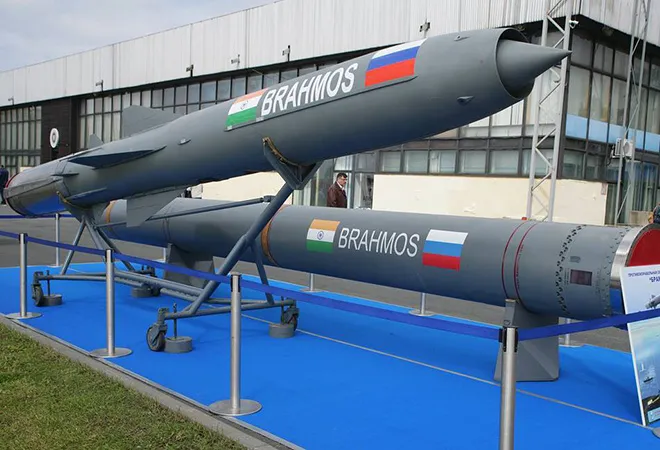During the UPA government, the BrahMos Corporation led by Dr Apathukatha Sivathanu Pillai faced some bureaucratic hurdles regarding exports. Leaked papers send to Pillai by the Ministry of Defence (MoD), MEA, Foreign Secretary showcased how the UPA was warry of exporting of BrahMos missiles to Philippines and Indonesia just not to offend China.
The three papers or letters were as follows: The first letter dated July 30, 2010 highlighted the cancellation if an Indonesian delegation scheduled visit to BrahMos Aerospace because a final view was yet to be taken on export of BrahMos missiles.
The second letter, dated May 9, 2011, from the then Foreign Secretary Nirupama Rao to the DRDO detailed India’s adherence to international guidelines and multilateral export control regimes stressing the need for the consolidated missile export policy.
The third letter which was written by the then MEA Director (Ravindra P Jaiswal) to BrahMos Aerospace instructed the military (defence manufacturing company) to refrain visiting Philippines due to lack of political clearance.
The Ministry of External Affairs raised concerns about a BrahMos Team planning to visit Philippines without obtaining political clearance The team was instructed to postpone their trip until clearance was granted and to consult with the MEA beforehand. Similarly, a planned visit by the Indonesian delegation to the BrahMos Aerospace Office in New Delhi was called off.
The MoD cited the need or a final decision on BrahMos missile exports before allowing such discussions, this move came despite Indonesia not raising these issues of missile purchase during official meetings. The MoD expressed concerns that previous interactions like showcasing the BrahMos missile on ships visiting Indonesia and discussions with BrahMos Aerospace might have sent misleading signals about India’s willingness to export.
A broader policy directive was issued by the Foreign Secretary to Dr Pillai. While supporting the principles to export BrahMos Missile to select countries under specific conditions (national security, foreign policy interests and international obligations), the directive emphasised the freezing on discussions related to exports until the government finalised its overall missile export policy.
The key point was a temporary freeze on discussions related to BrahMos exports. The Foreign Secretary letter referred to a previous MoD position approved by the then Raksha Mantri (Defence Minister) which put a hold on discussions about the BrahMos missile exports until the “general issue of missile exports was decided.
The media reports paint a picture of a UPA government carefully considering the implications of BrahMos Experts. While supportive of the program in principle, they prioritised formulating a comprehensive export policy before entering into agreements. The arrival of the Narendra Modi government in 2014 smoothly enabled the export of BrahMos missile to Philippines and Indonesia in addition to Vietnam which has shown interest in the project and is sure to acquire the weapon in the near future.




















Comments